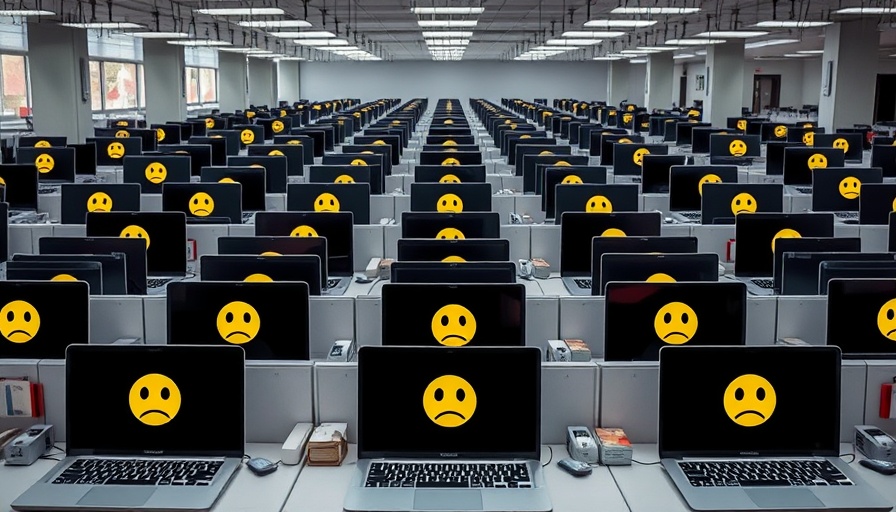
Understanding the Importance of Mental Health at Work
Maintaining mental health and wellbeing within the workplace has emerged as a critical responsibility for employers. With increasing awareness about mental health issues in recent years, there is a pressing need for organizations to develop strategies that support their staff's emotional and psychological needs. Implementing such initiatives not only contributes to a healthier workplace but also enhances overall productivity and employee satisfaction.
The Financial Toll of Poor Mental Health
Statistics from the Mental Health Foundation highlight that a staggering 17.1 million working days are lost each year due to stress, anxiety, and depression related to work. This translates to an average of 19.6 days of sick leave per employee. Such figures underline the urgent need for businesses to invest in mental health initiatives to mitigate losses associated with absenteeism and disengagement, particularly in sectors like finance where employees have expressed that their employers need to do more for mental wellbeing.
Benefits of Investing in Wellbeing Initiatives
Establishing mental health and wellbeing programs at work offers multiple advantages, such as increased job satisfaction, enhanced employee engagement, improved overall wellbeing, and a more harmonious work-life balance. Companies that prioritize mental health are likely to see a reduction in absenteeism and turnover rates. An engaged and satisfied workforce can lead to significant boosts in productivity and a positive company culture, ultimately enhancing the brand’s reputation.
Maximizing the Impact of Employee Assistance Programs
One effective strategy many organizations are adopting is the implementation of Employee Assistance Programs (EAPs). These programs provide employees with resources for professional counseling and mental health support, making them an invaluable asset. For every pound invested in an EAP, companies can expect a return of about £10.85, further demonstrating the financial wisdom of prioritizing mental health.
Three Steps to Strengthen Your EAP Investment
To gain the most out of an EAP, businesses can focus on the following strategies:
1. Drive Awareness Across the Company
It's crucial to keep your EAP visible to all employees. Regular communication through emails, articles, posters, and infographics can inform your team about program features and resources available to them, effectively lowering barriers to access.
2. Equip Managers with Mental Health First Aid Training
Line managers play a pivotal role as the first responders to mental health concerns within teams. Training them in mental health first aid can empower them to identify early signs of distress among their employees and respond effectively, fostering a supportive workplace environment.
3. Gather Employee Feedback
Listening to employee feedback can shed light on the effectiveness of your EAP and highlight areas for improvement. Conducting anonymous surveys can help organizations assess what aspects of mental health support are resonating with employees and what is lacking.
Conclusion: Taking Action for Mental Health
The positive impacts of prioritizing mental health at work cannot be overstated. Employers who invest in mental wellbeing initiatives are not only supporting their staff but also bolstering their business’s bottom line. By establishing an accessible EAP, training managers, and engaging employees in dialogue about their mental health needs, organizations can cultivate a more productive, supportive, and thriving work environment.
If you're a business leader or manager, now is the time to evaluate your mental health initiatives and take proactive steps to enhance your workplace culture. Your commitment to fostering mental health can make a significant difference for your employees and the organization as a whole.
 Add Row
Add Row  Add
Add 




Write A Comment